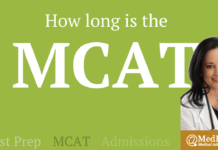Medical Schools that Accept International Students (2023-2024)
If you want to be a physician, you already know that admission to medical school is enormously competitive, with just around 40 percent of applicants matriculating at allopathic institutions per year. This is stressful enough for U.S. and Canadian citizens, but international students face an even steeper uphill climb.*
This may seem discouraging if you’re a medical doctor hopeful who wants to receive your education in the U.S. But the good news is, there are some medical schools within the country that do accept international students — even many top institutions.
Every year we at MedEdits work with international medical school applicants who are accepted to medical school despite the greater level of competition.
Will you get into a U.S. school? We’ll take a look at the medical schools in the country that accept international students, offer tips for increasing your chances of admission, and take a look at financial aid considerations.
Can you get into medical schools in the US as an international student?
According to the Association of American Medical Colleges (AAMC), of the 1,890 foreign candidates who applied to MD programs in the U.S. in 2019, just 325 were admitted. That translates to 17.2 percent, less than half the admissions rate for all students.
But that doesn’t mean admission is impossible. While fewer than 50 medical schools in the U.S. accept international students, you still have some options, including many of the most prestigious institutions in the country and world.
List of Medical Schools that Accept International Students
According to the AAMC, the U.S. medical schools listed below accept international students (NB: a longer list of schools also accept Canadian students).
| Medical School | Location |
| Boston University School of Medicine | Boston, MA |
| Case Western Reserve University School of Medicine | Cleveland, OH |
| Columbia University Vagelos College of Physicians and Surgeons | New York, NY |
| Duke University School of Medicine | Durham, NC |
| Emory University School of Medicine | Atlanta, GA |
| Geisel School of Medicine at Dartmouth | Hanover, NH |
| Georgetown University School of Medicine | Washington, DC |
| Harvard Medical School | Boston, MA |
| Howard University College of Medicine | Washington, DC |
| Icahn School of Medicine at Mount Sinai | New York, NY |
| Johns Hopkins University School of Medicine | Baltimore, MD |
| Keck School of Medicine of the University of Southern California | Los Angeles, CA |
| Morehouse School of Medicine | Atlanta, GA |
| Northwestern University The Feinberg School of Medicine | Chicago, IL |
| Perelman School of Medicine at the University of Pennsylvania | Philadelphia, PA |
| Renaissance School of Medicine at Stony Brook University | Stony Brook, NY |
| Rutgers New Jersey Medical School | Newark, NJ |
| Saint Louis University School of Medicine | Saint Louis, MO |
| Sidney Kimmel Medical College at Thomas Jefferson University | Philadelphia, PA |
| Stanford University School of Medicine | |
| State University of New York Upstate Medical University | Syracuse, NY |
| TCU and UNTHSC School of Medicine | Fort Worth, TX |
| The University of Toledo College of Medicine and Life Sciences | Toledo, OH |
| The Warren Alpert Medical School of Brown University | Providence, RI |
| Tufts University School of Medicine | Boston, MA |
| Tulane University School of Medicine | New Orleans, LA |
| University of California, Davis, School of Medicine | Sacramento, CA |
| University of California, Los Angeles David Geffen School of Medicine | Los Angeles, CA |
| University of Chicago Division of the Biological Sciences The Pritzker School of Medicine | Chicago, IL |
| University of Chicago Division of the Biological Sciences The Pritzker School of Medicine | Aurora, CO |
| University of Connecticut School of Medicine | Farmington, CT |
| University of Hawaii, John A. Burns School of Medicine | Honolulu, HI |
| University of Illinois College of Medicine | Chicago, IL |
| University of North Carolina at Chapel Hill School of Medicine | Chapel Hill, NC |
| University of Pittsburgh School of Medicine | Pittsburgh, PA |
| University of South Alabama College of Medicine | Mobile, AL |
| University of Utah School of Medicine | Salt Lake City, UT |
| University of Virginia School of Medicine | Charlottesville, VA |
| Vanderbilt University School of Medicine | Nashville, TN |
| Washington University in St. Louis School of Medicine | Saint Louis, MO |
| Wayne State University School of Medicine | Detroit, MI |
| Weill Cornell Medicine | New York, NY |
| Yale School of Medicine | New Haven, CT |
Tips for Applying
Work with a pre-health advisor.
The AAMC recommends that all pre-med students work with a pre-health advisor as they prepare for medical school. It’s common practice for undergraduate colleges and universities in the U.S. to offer a pre-med track, and students who pursue it receive a pre-health advisor who gives them guidance and ensures they’re doing what they need to do to get into med school.
If you don’t have a pre-health advisor at your undergraduate college, you can find one via the NAAHP.
Take the MCAT — and earn a high score.
The vast majority of U.S. medical schools require the MCAT for admission. Like other students, you should take the exam, too, and prepare extensively in order to earn a high score to improve your chances of admission. Some countries outside the U.S. have testing sites. Refer to this list for more information.
Make sure your courses translate and transfer.
Because courses and curricula differ from country to country, admissions committees need to see that you’ve completed the proper prerequisites. You may choose to complete additional requirements at a U.S. institution as a non-matriculated student. Another option is to have coursework from an international institution accepted by a U.S. or Canadian college or university where you earn your degree. If you did your coursework at an accredited U.S. school, this won’t be an issue.
Demonstrate English language proficiency.
In order to be accepted by a U.S. medical school, you will need to demonstrate language proficiency in English. You can generally do this by receiving a satisfactory score on the TOEFL exam.
Be prepared to make your case.
You will have to justify your plan to attend medical school in the U.S. rather than in your home country. Be prepared to explain your decision. Perhaps there are more resources and opportunities in the U.S., or you want to work in international healthcare. Whatever the reason, have a valid, well-stated argument to present.
Financial aid FAQs
Unfortunately, financial aid is more difficult to come by as an international student. Some medical schools may require you to prove that you have the financial means to pay for four years of medical school. But there are some resources to help you fund your education.
Can I secure federal student loans as an international student?
Usually no. Most international students cannot access federal loans.
Can I get financial aid from individual institutions?
Some top medical schools offer scholarships and/or loans to international institutions, which can help offset the cost. Check with individual schools on the list above to learn more about these awards.
What other resources do I have to help me pay for medical school?
There are a number of private organizations that provide loans and scholarships, sometimes specifically intended for international students. These can also be excellent resources to help you pay for your medical education.
*For the sake of this article, “international” is defined as people whose country of citizenship is not the United States or Canada.








